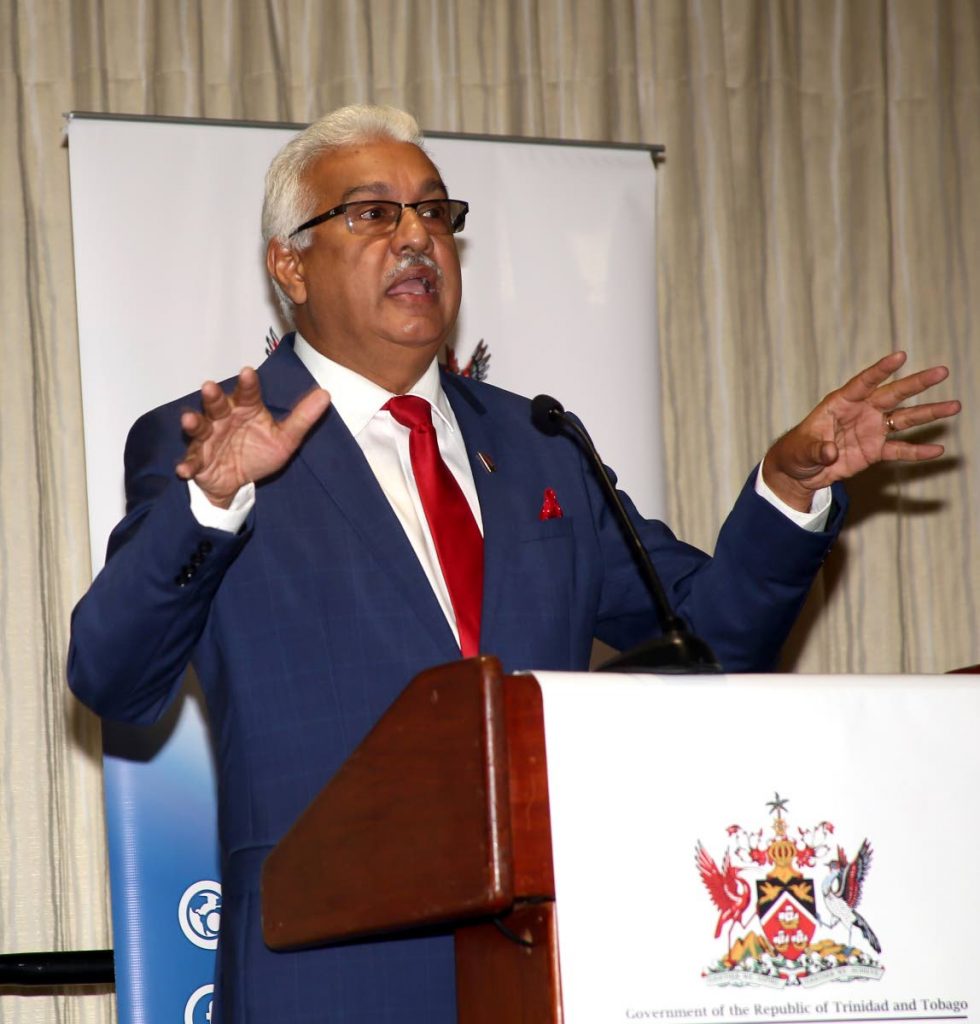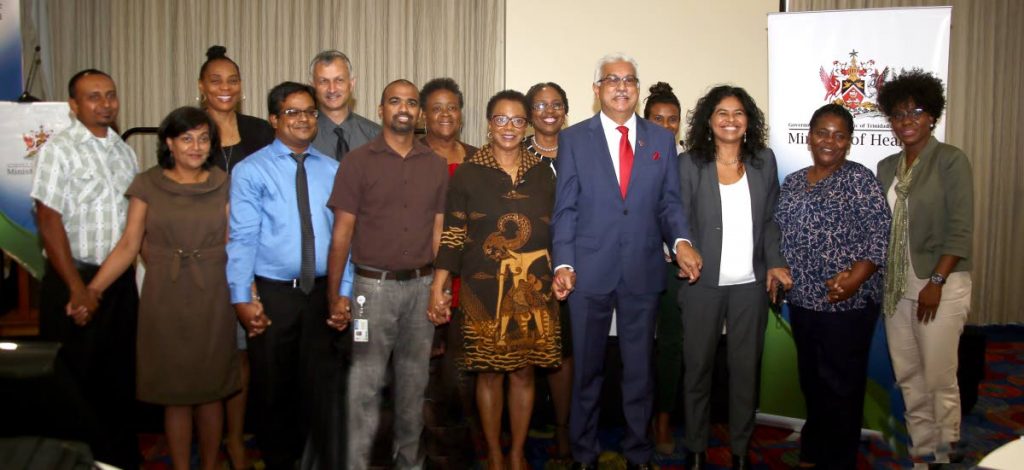Mental health patients can't just 'snap out of it'

HEALTH Minister Terrence Deyalsingh says society tells people with mental health issues to just "snap out of it."
"Mental health is not something you snap out of. It is not something you get over with a good night's rest. We need to take how we treat mental health from the dark ages and into a period of enlightenment."
He was speaking yesterday at the final Consultation on National Mental Health Policy held at Hilton Trinidad and Conference Centre, Port of Spain.
Deyalsingh read a quote from Canadian poet Nicole Lyons who said, "The deepest pain I ever felt was denying my own feelings to make everyone else comfortable." He said people with mental health issues faced the challenge of those around them not understanding what they were going through. He said, as patients, they had to pretend and adjust their lives to make those around them comfortable.
Deyalsingh said that was the inherent bias many mental health sufferers faced. He said, while conditions like diabetes and heart disease could be diagnosed by tests, he questioned whether there was any test for a mental health sufferer.
"As societies we tell people 'snap out of it.' Why don't we tell diabetics 'snap out of it?'"
He said discrimination comes because of the ignorance or people.
"We tell people, 'It will pass tomorrow,' that 'It's a phase.'"

He expressed hope the National Mental Health Policy would address the issue. Deyalsingh said people in lower socio-economic groups had the most ignorance and absence of information about mental health. He said when families did not have information, that led to more stigma and discrimination.
"What we have to do as a society to improve mental health and to help those with mental health disorders cope is going to require a process of identification of those with mental health disorders, management, maintenance (and) follow up."
He said these were the "hard skills" but the soft skill needed was a lot of empathy. Deyalsingh said he knew many people with diabetes and cancer who could not cope even though diabetes was treatable and to some extent curable.
"What do you leave with the person with a mental disease (such as) depression, schizophrenia? Where their mind isn't functioning as it should? And we expect them to 'snap out of it.'"
He said the ministry was taking the bold step of engaging and employing a mental health director, a first for this country. He expressed hope the mental health director would take mental health physically away from its centralised position in St Ann's back to where it belongs – in a community setting, which was international best practice.
"So with this move TT will be joining the more enlightened countries that have taken this stand."
He said that would be a key deliverable on how the effectiveness of the mental health director would be measured.
Pan American Health Organisation (PAHO) country representative for TT Dr Erica Wheeler congratulated the ministry on the consultation and for moving forward with the National Mental Health Policy.
She said the notions of mental illness and stigma must be left behind.
"And just like any other type of illness people with mental health should be treated with dignity."
She encouraged the attendees to ensure the implementation plan for the policy is timely, has set objectives and is measurable. She said changes must be made both at the policy and services levels.
Inter-American Development Bank (IDB) representative Rocio Medina-Bolivar said, in TT, about 25 per cent of people were living with mental health issues and it needed to be looked at as a development issue. She also congratulated Deyalsingh on prioritising mental health issues.


Comments
"Mental health patients can’t just ‘snap out of it’"